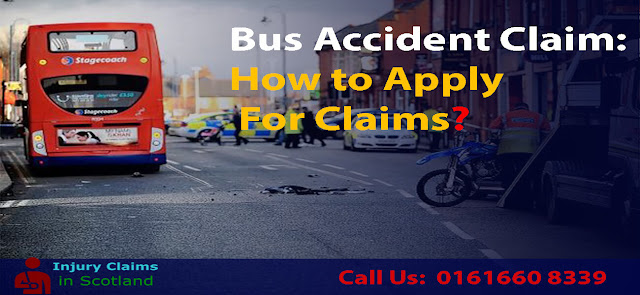Bus Accident Claim: How to Apply For Claims?
It was just another day for Brady, a dedicated cyclist who
cycles to and from work in Ashford. It was just a normal day for him, on march
the second, 2018.
As he was waiting for the lights to go green, on an inner
junction, he felt a big push from behind and was immediately sent sprawling off
his bicycle. Turns out, a bus had knocked him, as it was approaching the bus
stop. Brady sustained serious injuries and had to be admitted into hospital for
a few days.
Brady’s story is becoming common on British roads. In fact,
recent studies from the department of transport indicated that between 2007 and
2018, accidents involving buses claimed one life every
2 weeks in London. Fortunately not all injury cases
involving buses are as serious. However, the majority of buses still do not
carry seat belts and therefore the risk of injury still remains high.
The public transport system in
the UK has a high level of health and safety standards.
The
government has also implemented ample measures to ensure that this remains to
be the case for some time to
come. In the year between 2017-2018, there has been at least 20,000 incidents involving public buses across U.K. With such
high numbers, it’s of essence to discuss grounds for compensations for
individuals who have sustained injuries.
When is a Claim Viable?
For a solicitor, to at least hear your case, you must have
at least been:
●
Injured in the last three years (longer if children
were involved)
●
Someone (e.g. the driver, bus company, other road user
etc.) else was at fault
|
Solicitors usually have
three step they follow to be able to lodge a case on your behalf.
|
||
|
You must feel certain other requirements which generally
are:
|
||
●
Limitation – It must have happened in the last 3 years
●
Causation – the accident was the direct cause of the
injury
●
Liability – a person or entity owed you a duty of care
and was responsible for the injury
What is the £1,000 rule?
The solicitor will want to ensure that the total of general
and special damages exceeds £1,000 – the small claims court limit.
If the claim is worth less
than this then the solicitor will not be able to recover their costs from the
defendant. A solicitor will consider a claim worth less than claim to be ‘low
quantum’.
What to Do Immediately After An Accident?
You should be able to understand accidents are bound to
happen in or outside the bus. While inside the bus, you may bump your head on
the seat in front of you, or get thrown off your seat and suffer injuries due
to the drivers bad and irresponsible driving.
In the event this happens, you should first try to get as
much as information as possible. Many people will first rush to communicate
with other passengers in the bus. Gather as much as you can, with their
contacts too, just in case you may require them as witnesses, especially on the
cause of the accident.
The next thing to do is seek medical attention if the injuries are many. If
there are police at the
scene, answer their questions in relation to what caused the accident to occur
and leave your state of health to the discretion to the doctor’s report.
You should also have proof
that you were a passenger on the bus. Mainly tuck your ticket or pass for
future verification. If possible, take photographs of the scene of the accident
– this can validate your account of events.
After How Long Should I Make a Claim?
Its best advised to make a contact, to the office of a personal
injury solicito r, as soon as its possible.
This not
only helps in giving accurate information on the case, as its more fresh in
your memory, but also you solicitor can start making enquiries soon enough,
maybe ask for CCTV clips on the set date. Some CCTV clips delete their footage
automatically after a set period.
For your solicitor, it will be
a race against time to get the most of the evidence available By law, you have
a maximum of up to three years to make a claim, thus you shouldn’t feel pressured
whatsoever. But keep in mind, the earlier the better, your chances of being
successful in your claims application.
How Compensation Could Help You
For many people, it’s always about the money involved. While
financial compensation is still an important factor, it can’t be enough to be
substituted for any injuries on your body.
As a basic principle in personal injury law, the whole point
of making claims, is to as much as possible, return the person to the position
would have been in if the accident or illness had not happened.
While it’s not expected, Compensation does not try, in any
way change the past, but it should have a positive impact on your present
circumstances and future recovery. The courts recognize that a bus or coach
accident can have a life-changing impact. Compensation may be awarded:
●
For any pain and suffering sustained
●
To cover extra medical expenses such as physiotherapy,
if need be.
●
To reimburse any other expenses or damage to personal
property
●
To cover any loss of earnings including those
anticipated in the future
All these are important factors that should be remembered,
for they will reflect in the bus accidents compensation claims
that are made. Remember irrational steps taken after the public transport
accident only worsen the situation of a solid case on grounds for the intended
compensation claim
Generally, a lot is involved in accident claims. It’s always
a good idea to seek help from the numerous advisers specializing on accidents
claims.



Comments
Post a Comment